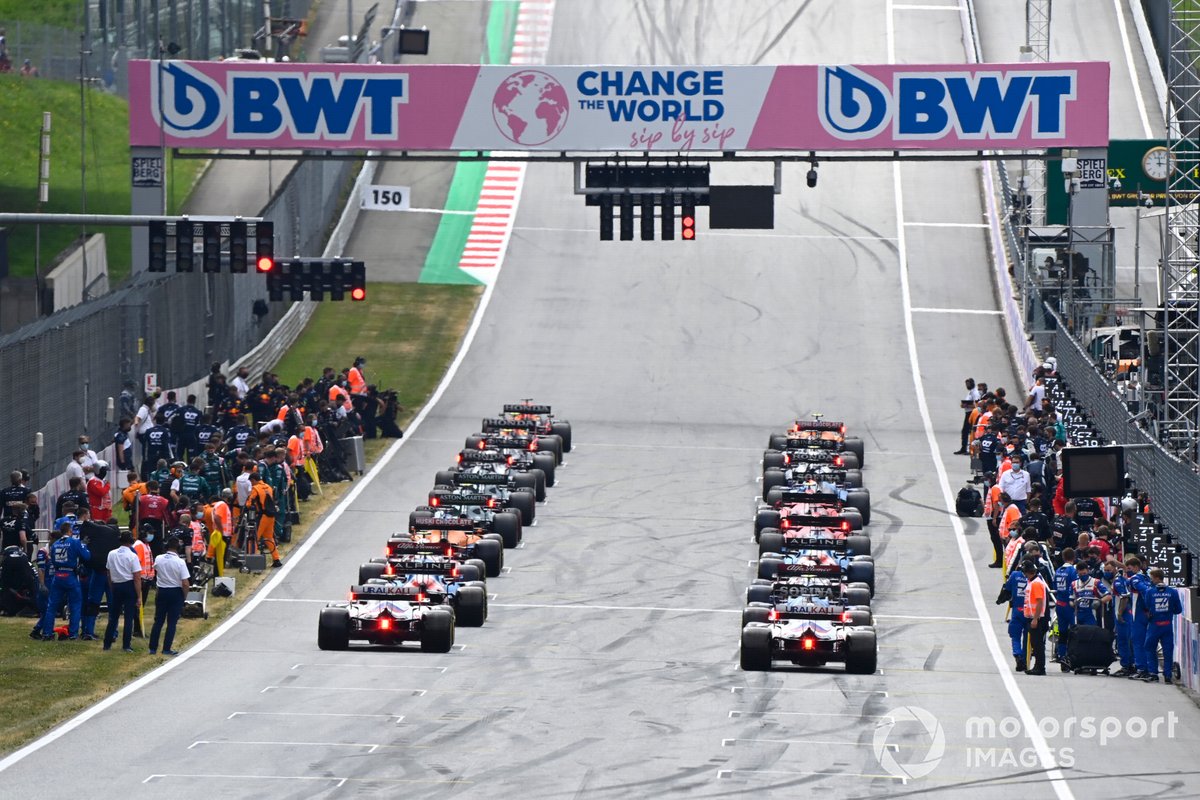F1 will debut its new sprint weekend format at the British Grand Prix, introducing a 100km race on Saturday afternoon in place of qualifying.
The format shake-up sees qualifying move to Friday evening, with the result setting the grid for the 17-lap race on Saturday.
The result of the sprint race will set the grid for the grand prix on Sunday. The winner will officially score ‘pole position’ for the event, while the top three will receive points on a 3-2-1 scale.
The rules surrounding sprint races were signed off by the World Motor Sport Council earlier this week, with Masi confirming in Austria that they would be handing out penalties and dealing with on-track incidents in exactly the same way as a normal grand prix.
“If we find an incident that two drivers are involved in, in the grand prix here, we can apply a grid penalty for the next grand prix,” Masi said.
“So grid penalties and time penalties, for driving infringements and so forth, those penalties will be applied.
“The rest of the regulations regarding power units and so forth, which is subject to approval from the F1 Commission and the FIA World Motor Sport Council later this week, but they will be applied in a different way and focused on the race.
“But things that affect your grid starting position will, from the perspective of a driving infringement or anything like that, will be applied either as a grid or a time penalty at the time.”

Max Verstappen, Red Bull Racing RB16B, and Lando Norris, McLaren MCL35M, prepare to lead the field away at the start
Photo by: Mark Sutton / Motorsport Images
The sprint races are planned to last around 30 minutes, but Masi confirmed that there would be a maximum overall time implemented should there be a red flag, similar to how the rule functions in grands prix.
“The only thing that has really changed in that capacity is the duration,” Masi said.
“So it is obviously the sprint is a notional 30 minutes in duration, and the maximum time is either 60 or 90 minutes – I cannot remember off the top of my head.
“But effectively there is the buffer that has been added into that should we have a suspension that is deemed necessary.”
Silverstone will hold the first of three sprint races planned in F1 this year as part of a trial that could see the format be expanded in the future depending on its success.
Masi felt it was important for all of the teams and drivers to have “a completely open mind” in approaching the races, in case loopholes or incidents arise that may prompt future rule tweaks.
“After the first event, let’s happily review internally and see what did work, what didn’t work, and other areas that need to be refined,” Masi said.
“With everyone involved, it is something new for all of us, particularly in an F1 capacity.
“The regulations traditionally have been structured in a very specific format and way around a grand prix taking place without a sprint qualifying area happening.
“So everyone’s quite open and has said that we all just need to work together and see what pops up, anything that we haven’t considered as much as everyone has read them inside out today.”
shares
comments
